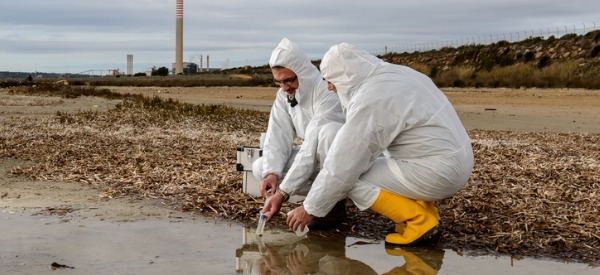What is an Industrial Ecologist?
Industrial ecologists do laboratory and field tests to monitor the environment and investigate sources of pollution, including those affecting health. Many work under the supervision of environmental scientists and specialists who direct their work and evaluate their results. They work in offices, laboratories, and in the field.
What does an Industrial Ecologist do?

Industrial ecologists typically do the following:
- Inspect establishments, including public places and businesses, to ensure that there are no environmental, health, or safety hazards
- Set up and maintain equipment used to monitor pollution levels, such as remote sensors that measure emissions from smokestacks
- Collect samples of air, soil, water, and other materials for laboratory analysis
- Perform scientific tests to identify and measure levels of pollutants in samples
- Prepare charts and reports that summarize test results
- Discuss test results and analyses with clients
Many industrial ecologists often work on teams with scientists, engineers, and ecologists in other fields to solve complex problems related to environmental degradation and public health. For example, they may work with geoscientists and hydrologists to manage the cleanup of contaminated soils and ground water.
Most industrial ecologists work either for local government or for private consulting firms. In local government, they enforce regulations that protect the environment and people’s health. They spend a lot of time inspecting businesses and public places and investigating complaints related to air quality, water quality, and food safety. They may issue fines or close establishments that violate environmental or health regulations.
In private consulting firms, industrial ecologists help clients monitor and manage the environment and comply with regulations. For example, they help businesses develop cleanup plans for contaminated sites, and they recommend ways to reduce, control, or eliminate pollution. Also, they conduct feasibility studies for, and monitor the environmental impact of, new construction projects.
Industrial ecologists must be able to carry out a wide range of laboratory and field tests, and their results must be accurate and precise. They reach their conclusions through sound reasoning and judgment. They have to be able to determine the best way to address environmental hazards.
Industrial ecologists need to be able to work well with others as part of a team, because they often work together with scientists and other technicians. They must carefully follow instructions given to them by environmental scientists and specialists, because any mistakes can invalidate the results of their experiments and investigations. They must be able to discuss their results with clients and colleagues. They must document the results of their work in written reports.
What is the workplace of an Industrial Ecologist like?
Most industrial ecologists work for professional, scientific, and technical services firms or for various levels of government. They work in laboratories, offices, and the field. Fieldwork offers a variety of settings; for example, an ecologist may investigate a chemical spill inside a manufacturing plant or spend time outdoors testing the water quality of lakes and rivers. In the field, ecologists spend most of their time on their feet, which can be physically demanding. Also, they may need to set up monitoring or testing equipment, which can involve some heavy lifting and frequent bending and crouching.
Industrial Ecologists are also known as:
Industrial Ecology Analyst
Environmental Scientist
Environmental Analyst